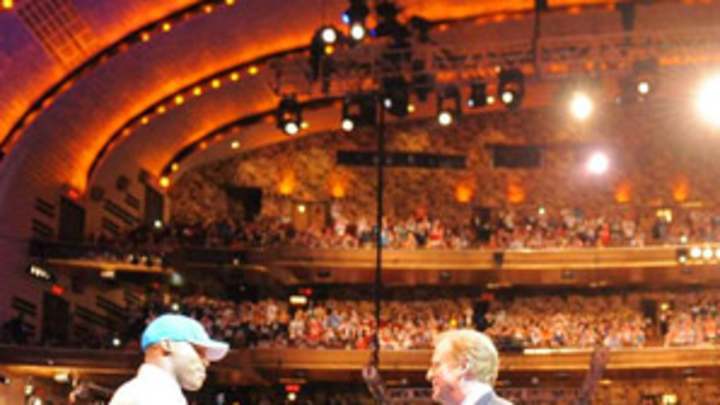NFL badly losing the battle in the court of public opinion

In its campaign to win the hearts and minds of America, NFL owners have had a very bad week.
That shouldn't have happened, right? The NFL Draft is supposed to a time of excitement and anticipation, its popularity a sign of the game's stranglehold on American sports fans.
But the television ratings were down. And that was only part of the disastrous week. The annual player selection couldn't return a sense of normalcy to the league, couldn't interrupt the steady stream of bad news.
Commissioner Roger Goodell was roundly booed at the NFL Draft. His reaction to the catcalls and chants of "We want football" at Radio City Music Hall was to say, "I hear you," even as his lawyers were working hard to keep football dark.
But the most damning moment for the league came on Monday, when medical researchers at Boston University released their findings on Dave Duerson.
The former Chicago Bears safety shot himself in the chest last February, taking care not to damage his brain. His suicide note asked that his brain be studied by the brain bank at the university.
Dr. Ann McKee, a co-director at the Center for Study of Traumatic Encephalopathy at BU's School of Medicine, said Monday the results were "indisputable." Duerson, 50, was found to have "moderately advanced" signs of a degenerative brain disease associated with blows to the head.
The NFL gets credit for helping to fund the brain bank and for its recent steps toward a more comprehensive concussion and brain injury program. But the league has a long history of denial; Duerson himself was part of that culture of denial. As a member of the NFLPA board for player benefits, he testified in front of Congress, questioning the impact his sport could have on brain disease. That was in 2007, light years ago in the timeline of brain research.
Four years later, Duerson has become a powerful symbol. His suicide and Monday's findings come in the midst of this nasty battle between owners and players, a dispute over how to cut up a multibillion dollar pie.
Duerson serves as a stark reminder of what the players have at stake: not only their livelihoods but their lives.
Yet the owners continue to push for an 18-game season, a money grab that the players reject, the fans didn't request and a push that renders hollow every word of concern the league offers about health and safety. If the owners think the public doesn't see the hypocrisy, they're woefully misled.
The NFL is indisputably America's favorite sport, but that doesn't mean it is Teflon-coated. And right now the owners are treading in dangerous territory.
The tragic findings in the Duerson case are just the latest blow to the league, which has had months of public relations disasters: from Super Bowl tickets without seats to Goodell's absurd Chicken Little rendering of Judge Susan Nelson's ruling against the league in an Op-Ed in The Wall Street Journal last week.
Now Duerson's private tragedy has become part of the public discussion. The details of the labor dispute is being played out in the courts, but the broad strokes are what resonate with the public. And the public isn't naive or willing to side with the owners just because the owners are the power brokers.
The public has a deep understanding of the risks associated with professional football, the chances of permanent disability, the short shelf life of players' careers, the brutality of the game.
A court ruled against the NFL on Monday, April 25.
The scientists ruled against the NFL on Monday, May 2.
The public verdict is being shaped, but those boos Goodell heard at Radio City last Thursday were a clue.
